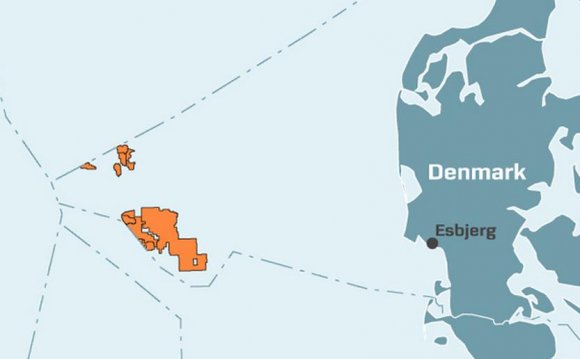
 There is still huge potential value in the North Sea, and Maersk Oil aims to become a top-5 producer, from its current rank of 9th. Projects like Culzean – which received board approval this month – and Johan Sverdrup show the opportunities.
There is still huge potential value in the North Sea, and Maersk Oil aims to become a top-5 producer, from its current rank of 9th. Projects like Culzean – which received board approval this month – and Johan Sverdrup show the opportunities.
The North Sea region has an estimated remaining potential of 26-38 billion barrels, according to consultancy Wood Mackenzie, and it remains a technically attractive province for future development - provided costs and regulatory regimes continue to incentivise investment.
Maersk Oil aims to become one of the five biggest producers in the North Sea in the first half of the next decade, through a combination of its existing portfolio, major capital investment and more efficient operations, which can add significant production, says CEO Jakob Thomasen. It is currently 9th. The forecast is based on only organic growth – so with growth investments, it could happen sooner.
“We have the capital to invest at a point in the cycle where better value is on the table than at any time in almost a decade, ” Thomasen says. “Many other oil companies are scaling back because of the current market, but that does not mean the assets are not viable and the right opportunities can offer great rewards.”
How to become a top-5 producer
- Growth – Adding value to the current portfolio through exploration and potentially also through M&A
- Major projects – Including Culzean, Johan Sverdrup, Golden Eagle and Tyra Southeast
- Operations excellence – Production from existing portfolio can be boosted by 10% by reducing unplanned losses and improving maintenance and shutdown efficiency
Promising projects
 The Group’s board has given the go-ahead for Culzean, a natural gas field which diversifies the oil-dominated portfolio and could supply 5% of the UK’s needs, and Maersk Oil will work with its partners through the summer to secure sanction for the project.
The Group’s board has given the go-ahead for Culzean, a natural gas field which diversifies the oil-dominated portfolio and could supply 5% of the UK’s needs, and Maersk Oil will work with its partners through the summer to secure sanction for the project.
“We have the capital to invest at a point in the cycle where better value is on the table than at any time in almost a decade” - Jakob Thomasen, CEO Maersk Oil
Maersk Oil has a share in Johan Sverdrup, one of Norway’s largest ever discoveries with estimated profitable extraction from USD 40/bbl, and in the UK’s Golden Eagle, which started production in 2014. The Tyra Southeast expansion in Denmark adds production from a current asset.
Better value
Around USD 20 billion of assets are for sale in the North Sea and Europe region, according to Wood Mackenzie. As part of a conglomerate, Maersk Oil has the balance sheet and flexibility to invest through the cycle and can take the longer term view required to reap the benefit, Thomasen says. It is also participating in licensing rounds in all three countries – Denmark, Norway and the UK – to grow its exploration acreage.
Growth has to offer value and a return on investment of at least 10%, and Maersk Oil is not under pressure and is prepared to wait until it finds the right opportunity at the right price, Thomasen adds.
Developing new technologies is an important part of maximising opportunities in a mature basin, and Maersk Oil and its partners have invested DKK 1 billion in a new research centre at the Technical University of Denmark (DTU), which focuses improving recovery of oil and gas. A recent tax change in the UK, which helped to provide the right incentive to invest in Culzean, is an example of how companies and authorities can work together to improve returns for both.
“We believe in the future of the North Sea, ” Thomasen says. “We are investing heavily in growth projects in the region, and constantly developing new technology and capabilities to improve recovery.”
Maersk Oil in the North Sea
- Maersk Oil has been North Sea for more than 50 years and had entitlement production of more than 100, 000 boepd in 2014. It has 23 producing fields and around 100 exploration licenses
- It is investing nearly USD 5 billion in Culzean and the first phase of Johan Sverdrup, one of Norway’s largest ever discoveries, with forecast plateau production of 550, 000-650, 000 boepd
- The industry creates, directly or indirectly, more than 600, 000 jobs. Maersk Oil has 2, 500 employees in the North Sea
- North Sea production has helped Denmark become energy self-sufficient and generated DKK 24 billion for the country in 2010
RELATED VIDEO













